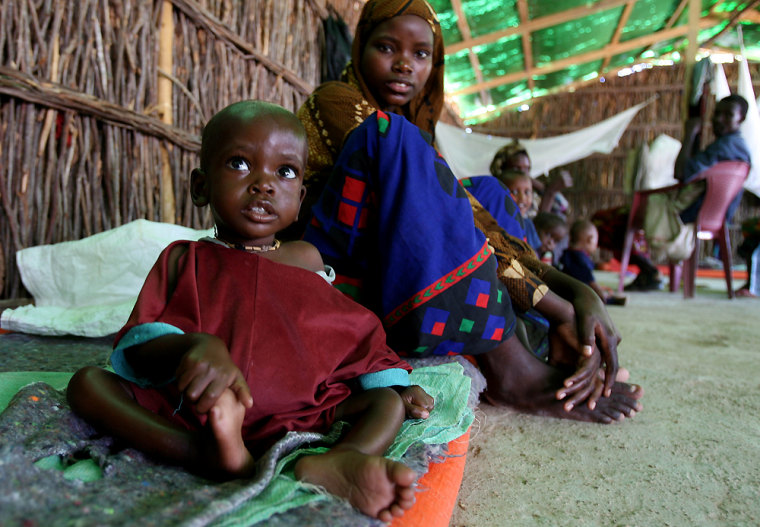Islamic militants in control of most of southern Somalia warned Thursday that war will erupt over a U.N. decision authorizing an African force to protect the country’s virtually powerless government.
The U.N. Security Council unanimously approved the resolution Wednesday, hoping to restore peace in Somalia and avert a broader conflict in the region. Prime Minister Ali Mohamed Gedis welcomed the decision and urged its immediate implementation.
The U.S. resolution, co-sponsored by the council’s African members, also partially lifts an arms embargo on Somalia so the regional force can be supplied with weapons and military equipment and train the government’s security forces.
In a possible indication that countries may be hesitant to contribute forces, Uganda — the only country thus far to volunteer troops — said it may hold off until the security situation improves. Deputy Defense Minister Ruth Nankabirwa said the situation had changed since Uganda first backed the peacekeeping proposal in January 2005.
“It may be that we will think of holding off until the terrain is not so hostile for Ugandan forces,” she said, although she called the lifting of the arms embargo “a first step.”
The resolution also urged the Islamic militants, who control the capital of Mogadishu, to stop any further military expansion and join the transitional government in peace talks.
Peace talks seen as unlikely
However, peace talks slated for later this month appeared unlikely, with the Islamic group saying it will now have to reconsider joining any such dialogue with the Somali government.
A spokesman for the Islamic movement said the resolution will introduce sophisticated weapons into Somalia and provoke a war between his group and the struggling government.
“We see the approval of the resolution as nothing but an evil intention,” Abdirahin Ali Mudey, spokesman for the Islamic Courts, told The Associated Press.
Mudey accused the Security Council of giving the Somali government’s main ally, Ethiopia, permission to occupy the country.
“The international community has proven to be biased and unjust,” he said.
The resolution, however, bans Somalia’s neighbors from sending soldiers, which would prohibit participation in the force by troops from Ethiopia, Djibouti and Kenya.
The arms embargo against Somalia was imposed in 1992, a year after warlords overthrew dictator Mohamed Siad Barre and then turned on one another. An interim government was formed two years ago with the help of the U.N., but it has struggled to assert its authority against the Islamic militants.
Fears of new conflagration
There are fears that, without international action, Somalia could become a proxy battleground for Ethiopia and Eritrea, which fought a border war in 1998-2000.
“International terrorists, opportunists are using some Somali people in order to destabilize our country and the region,” Gedis said in Nairobi, the capital of neighboring Kenya. “So the decision by the Security Council must be immediately implemented.”
Ethiopia supported the resolution but said it had come late.
“It would have been better if they had approved it nearly two years ago when it was originally proposed,” said Wahide Belay, acting spokesman for the Foreign Affairs Ministry.
The U.S. has accused Islamic Courts movement, which takes its name from a system of local religious courts, of harboring al-Qaida suspects.
A confidential U.N. report obtained recently by the AP said 6,000-8,000 Ethiopian troops were in Somalia or along the border, supporting the transitional government. It also said 2,000 soldiers from Eritrea were inside Somalia, supporting the Islamic militia — which Eritrea denies.
Eritrean official denounces resolution
Eritrean Information Minister Ali Abdu denounced the U.N. resolution as an “attack on the Somali people.” He also said it provided support for just one warlord, an indirect reference to Somali President Abdullahi Yusuf’s past as one of the country’s major warlords.
The authorized force “is not a peacekeeping force, it is an invasion keeping force,” Abdu told Al-Jazeera television.
The resolution authorizes a seven-nation East African group known as the Intergovernmental Authority on Development, or IGAD, and the African Union to establish “a protection and training mission in Somalia” for an initial period of six months.
Council diplomats said IGAD envisions a force of eight battalions, each with 700 to 800 troops, but only two would be deployed in the first phase.
